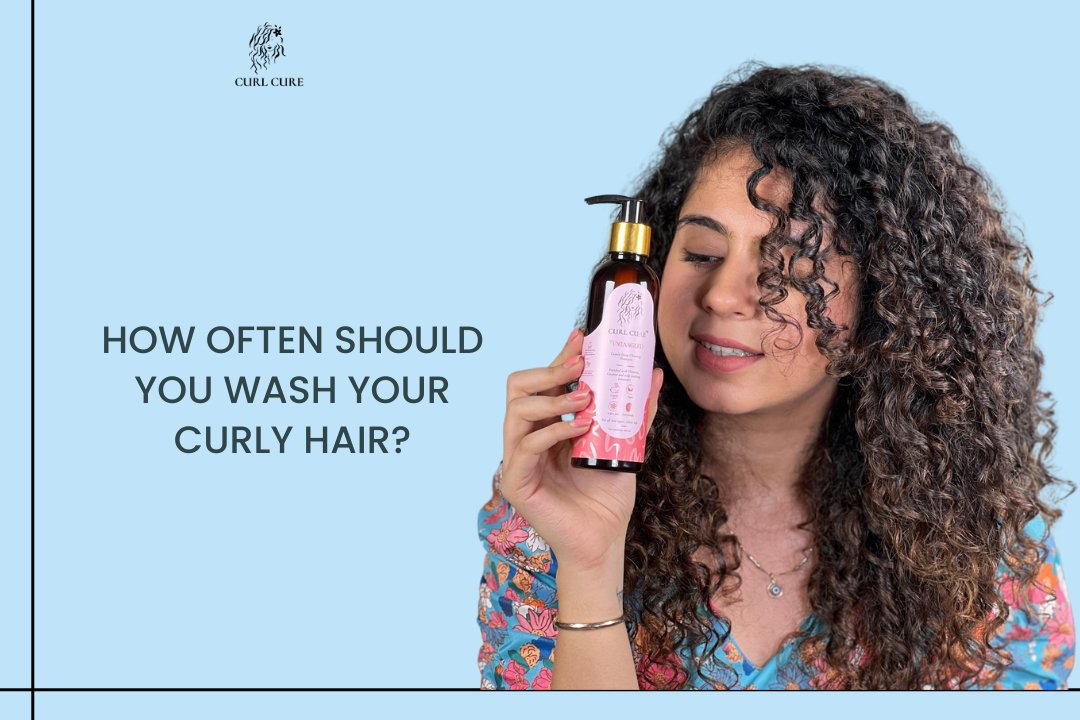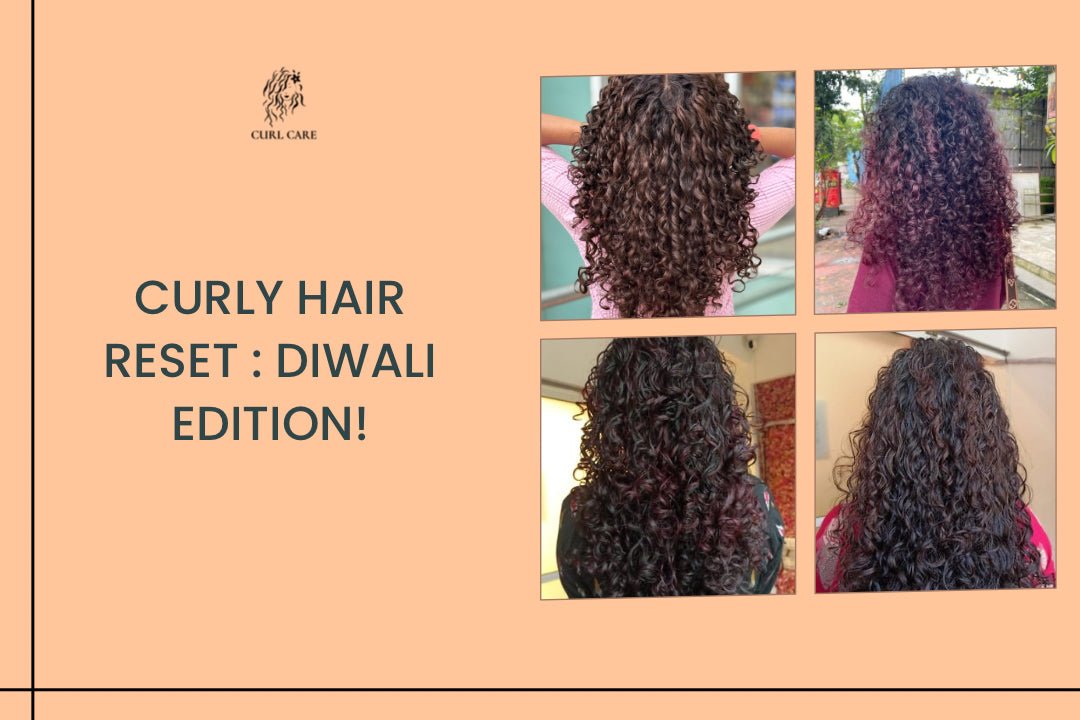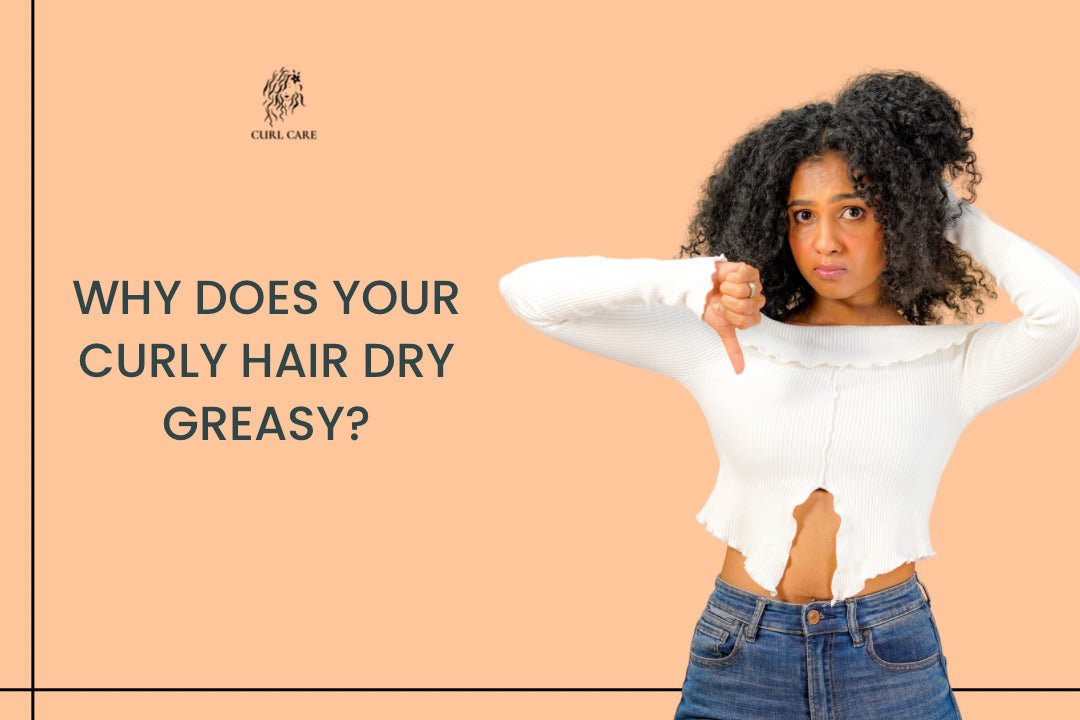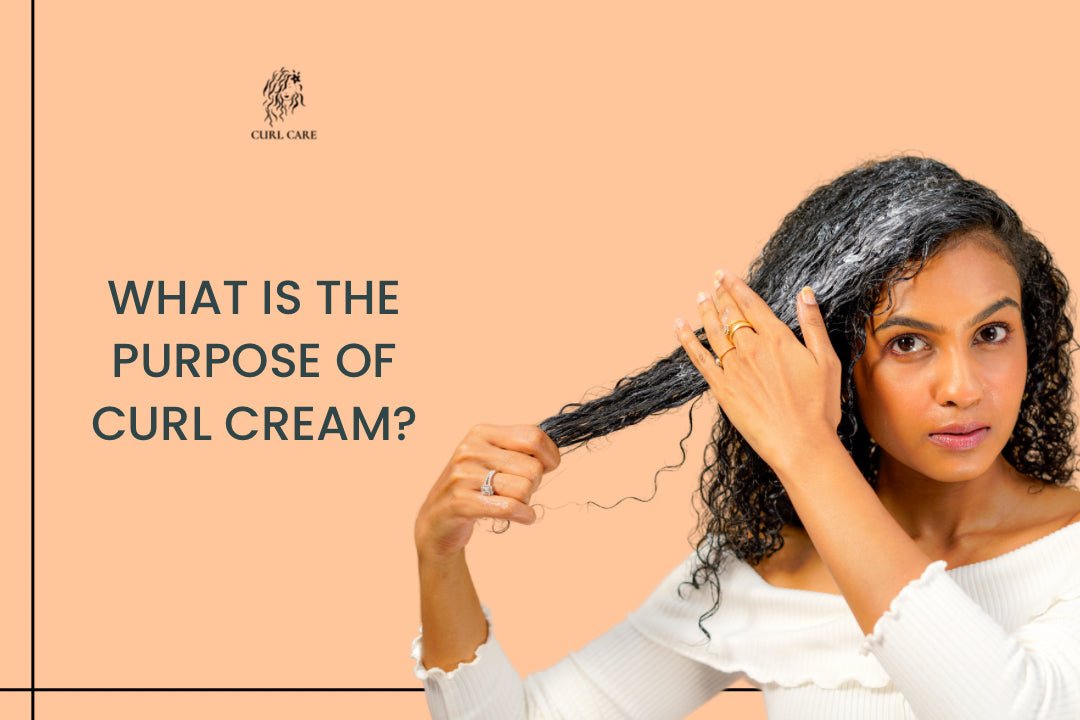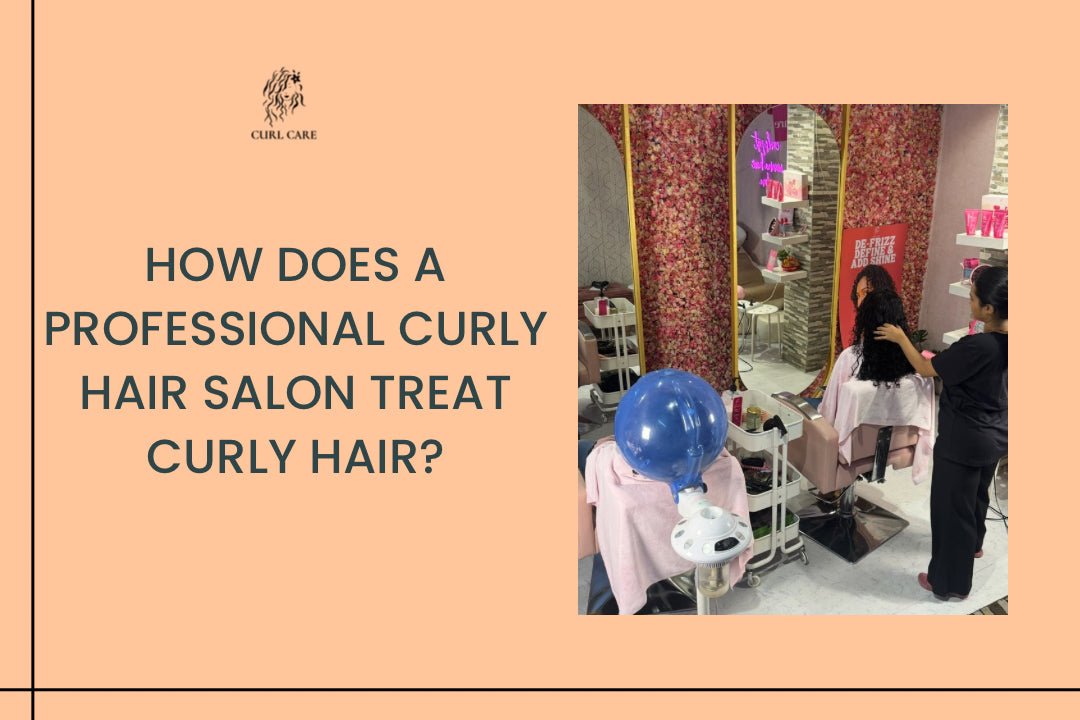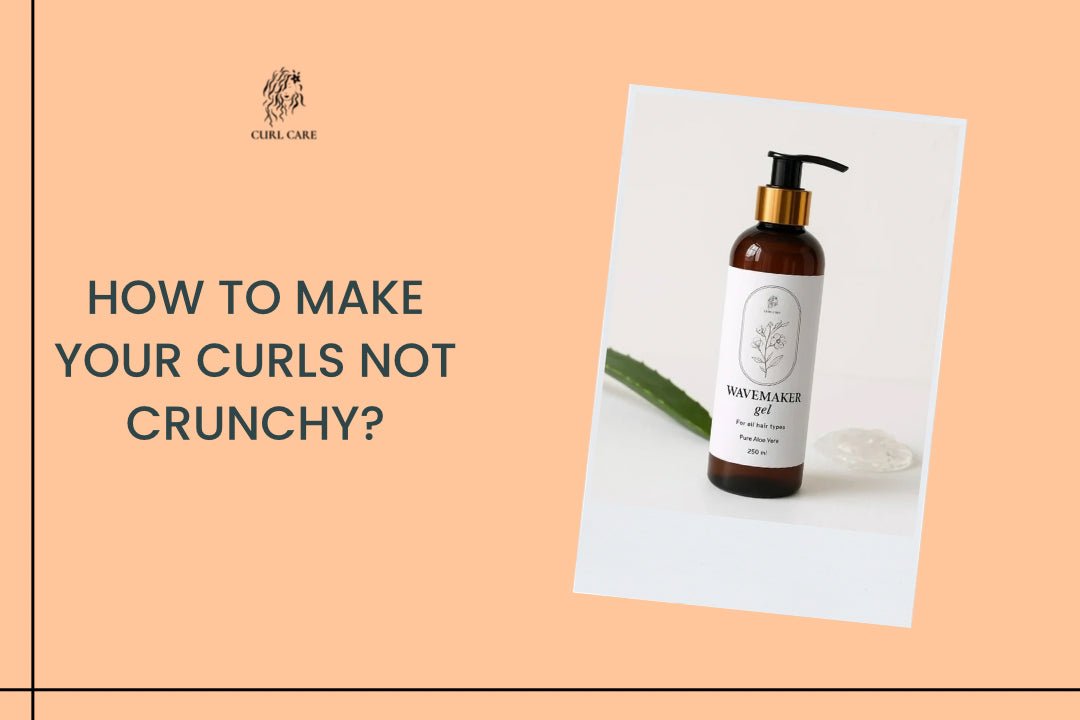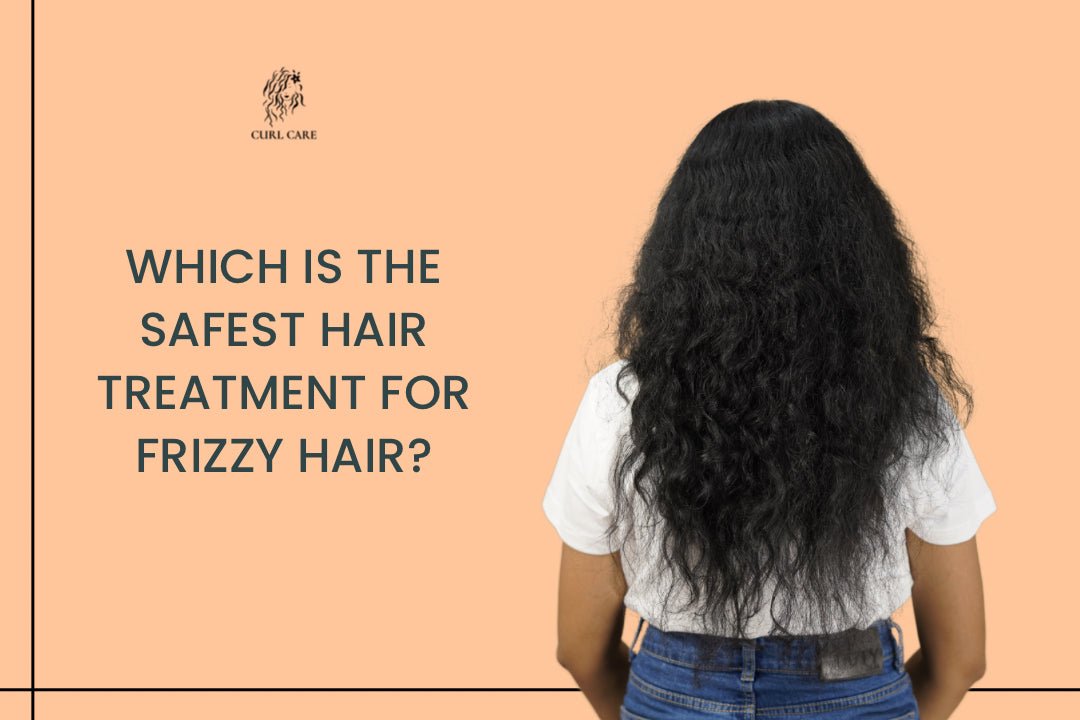Dive into the science of suds and spirals with Curl Cure's guide – your roadmap to a curly hair utopia!
Table of Contents
- Introduction
- The Science of Washing Curly Hair
- Factors Influencing Washing Frequency
- Choosing the Right Shampoo for Curly Hair
- Conditioner: A Curly Hair's Best Friend
- Tips for Washing Curly Hair
- Frequency Based on Hair Porosity
- Conclusion
- FAQs
How often should you wash your Curly Hair?
This article takes a deep dive into the science of washing curly hair, offering practical insights tailored for people with curly/wavy hair. We at Curl Cure are committed to help you achieve vibrant, healthy curls through an efficient and enjoyable wash routine.
Curly hair, a distinctive and beautiful texture, demands specialized care, especially in the realm of washing routines. At Curl Cure, we prioritize the unique needs of curly hair, focusing on delivering effective solutions for wash-day dilemmas. Our curated range of products is designed to make wash days a breeze, addressing the intricacies of maintaining those stunning curls
Before determining how often to wash curly hair, it's crucial to understand its unique characteristics. Curly hair is prone to dryness, and the natural oils produced by the scalp have a harder time traveling down the twists and turns of the curls. Therefore, finding the right balance in washing is essential.
The Science of Washing Curly Hair
Washing curly hair involves more than just cleansing; it's about preserving the hair's natural moisture. Over washing can strip the hair of its essential oils, leading to dryness and frizz. On the other hand, infrequent washing may result in product buildup and an itchy scalp. Striking a balance is key.

Factors Influencing Washing Frequency
Several factors influence how often one should wash their curly hair. Hair type, lifestyle, climate, and styling products all play a role. Understanding these factors helps in tailoring a washing routine that suits individual needs.
- Hair Type and Texture: Understanding your hair type and texture is fundamental in establishing an appropriate washing routine. While some may benefit from more frequent washing, others with drier curls might need a less frequent schedule.

- Climatic Conditions: The climate plays a significant role in determining how often you should wash your curly hair. Humid conditions might necessitate more frequent washing, while drier climates could allow for a more extended period between washes.
- Product Buildup: Product usage, such as styling gels and creams, can contribute to buildup on the hair, impacting the need for washing. Strike a balance between styling and maintaining a clean scalp.

- Scalp Health: A healthy scalp is vital for maintaining vibrant curls. Factors like dandruff or excess oil production can influence how often you need to wash your hair.
- Hydration Levels: The hydration level of your hair is closely linked to its washing needs. Hydrated curls may not require as frequent washing as drier ones.

- Hair Porosity: Understanding your hair's porosity is crucial. Highly porous hair may absorb products quickly, necessitating more frequent washing to prevent buildup.
- Styling Practices: Different styling practices, such as braiding or twisting, can influence how often you need to wash your curly hair. Assess your routine and adjust washing frequency accordingly.
Choosing the Right Shampoo for Curly Hair
The significance of selecting an appropriate shampoo for curly hair cannot be overstated. The right shampoo not only cleanses but also enhances the natural beauty of curls, providing much-needed hydration and minimizing frizz.
Types of Shampoos for Curly Hair
- Moisturizing Shampoos: Infused with hydrating ingredients, these shampoos help combat the dryness typical of curly hair.
- Sulfate-Free Shampoos: These are milder on curls, preserving natural oils without stripping them away.
- Clarifying Shampoos: Ideal for occasional use, they remove product buildup, keeping curls bouncy and defined.
- Co-washing Products: Formulated without harsh detergents, these products are perfect for those who prefer a conditioner-centric washing routine.
Ingredients to Look for in Curly Hair Shampoos
- Natural Oils: Look for shampoos containing argan oil, coconut oil, or olive oil for added moisture.
- Humectants: Ingredients like glycerin attract and retain moisture, keeping curls supple.
- Aloe Vera: Known for its hydrating properties, aloe vera soothes the scalp and promotes healthy curls.
- Shea Butter: Shampoos with shea butter provide intense moisture, combating dryness.
Conditioner: A Curly Hair's Best Friend
Curly hair is more prone to dryness and damage due to its structure, making deep conditioning a non-negotiable step in a curly hair care routine. Deep conditioning helps replenish moisture, improve elasticity, and prevent frizz, ensuring your curls look their best.
Types of Deep Conditioners
- Moisturizing Deep Conditioners: Ideal for providing intense hydration, these conditioners are perfect for curls prone to dryness. They work by infusing moisture into the hair shaft, promoting softness and manageability.
- Protein-Based Deep Conditioners: If your curls are damaged and need strengthening, protein-based deep conditioners are the way to go. They repair the hair structure, reduce breakage, and enhance overall hair health.
- Leave-In Deep Conditioners: For those who prefer a hassle-free approach, leave-in deep conditioners provide continuous moisture throughout the day, keeping your curls hydrated and frizz-free.
Ingredients to Look for in Deep Conditioners
- Argan Oil: Rich in vitamins and antioxidants, argan oil is a superb moisturizer that adds shine and vitality to your curls.
- Shea Butter: A natural emollient, shea butter is excellent for nourishing and softening curly hair, promoting a healthy curl pattern.
- Aloe Vera: Known for its soothing properties, aloe vera hydrates the hair and scalp, reducing dryness and irritation.
- Hydrolyzed Proteins: Essential for repairing damaged curls, hydrolyzed proteins strengthen the hair shaft, preventing breakage and split ends.
Tips for Washing Curly Hair
This section provides practical tips for washing curly hair, covering aspects like water temperature, detangling methods, and the use of microfiber towels to minimize frizz. These tips contribute to a positive washing experience and healthier curls.
- Pre-Wash Detangling: Curly hair is prone to tangling, especially during washing. Gently detangling your curls before washing helps prevent breakage and ensures a smoother washing experience. Use a detangle brush or your fingers to gently remove knots.
- Sectioning Your Hair Divide your hair into sections before washing. This not only makes the process more manageable but also ensures that each strand gets the attention it needs. Sectioning allows for thorough cleansing and conditioning.
- Conditioning Techniques Deep conditioning is a game-changer for curly hair. Invest in a good deep conditioner and consider leave-in conditioners for added moisture. Conditioning helps in maintaining elasticity and reducing frizz.
- Avoiding Hot Water Hot water can strip curly hair of its natural oils, leading to dryness and frizz. Opt for lukewarm water during the washing process to maintain moisture levels and keep your curls hydrated.
- Gentle Washing Motion When washing your curls, adopt a gentle motion. Avoid vigorous rubbing, as it can disrupt the curl pattern and lead to frizz. Instead, use a gentle massaging motion to cleanse your scalp and hair.
- Post-Wash Care After washing, handle your curls with care. Use a microfiber towel or an old cotton T-shirt to gently squeeze excess water. Avoid vigorous rubbing, which can disturb the curls and contribute to frizz.
Frequency Based on Hair Porosity
Hair porosity plays a crucial role in determining how often one should wash their curls.

- Low Porosity Hair: Low porosity hair is characterized by tightly packed cuticles, making it resistant to moisture absorption. For this hair type, a washing frequency of once a week or every ten days is generally sufficient. Over washing may lead to dryness, as low porosity hair tends to repel water.
- Normal Porosity Hair: Normal porosity hair strikes a balance, with cuticles that are open but not overly so. This allows for effective moisture retention. The optimal washing routine for normal porosity hair is typically once a week or every 7-10 days.
- High Porosity Hair: High porosity hair has more open cuticles, resulting in quick absorption but faster moisture loss. To replenish lost moisture, high porosity hair may require more frequent washing, approximately every 4-6 days. Deep conditioning is essential for this hair type.
Conclusion
Summing up the article, we'll emphasize the importance of a personalized washing routine for curly hair. Finding the right balance, understanding individual needs, and embracing natural texture lead to healthier, happier curls.
FAQs
-
Can I wash my curly hair every day?
- Washing daily is generally not recommended as it can strip natural oils, leading to dryness.
-
Are sulfate-free shampoos necessary for curly hair?
- Yes, sulfate-free shampoos are milder and gentler, preserving the natural oils in curly hair.
-
How can I maintain moisture after washing?
- Deep conditioning post-wash and using moisturizing styling products are effective for maintaining moisture.
-
Is co-washing suitable for all curl types?
- Co-washing can benefit most curl types, but individuals may need to experiment to find what works best for them.
-
Should I follow a specific routine for post-wash care?
- Yes, a post-wash routine, including deep conditioning and suitable styling products, contributes to healthier curls.
-
Can I switch between different haircare products for my curly hair?
- It's advisable to stick to a consistent routine with products that work well for your hair. Frequent changes may disrupt your curls' balance and lead to unpredictability.
-
How can I combat frizz between wash days?
- Use a water and curl cream mix to refresh curls between washes. Avoid overloading with product; instead, focus on areas that need revitalizing.


